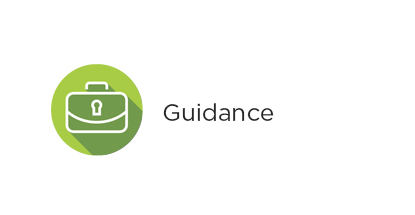
 [Originally published by CPA Quebec edited by CPABC. Used with permission.]
[Originally published by CPA Quebec edited by CPABC. Used with permission.]
Social media platforms are commonplace and members’ online profiles have become integral to their public and private personas. Professional accountants may want to exercise caution when using social media platforms to ensure they are in compliance with the Code of Professional Conduct.
Before sharing information, expressing opinions or posting pictures online, members may want to consider these useful tips to help them navigate social media platforms and stay onside with professional and ethical obligations.
- Be careful: The line between private and professional personas is becoming increasingly blurred
Given the ubiquity of social media platforms, it may not be surprising that professional organizations are paying more attention to how their members and employees are engaging on social media. What’s more, for professional accountants, the Code of Professional Conduct could extend to cover their actions in their private sphere.
- Act responsibly
Membership in a professional body comes with certain privileges and obligations. Some of these obligations hold the professional accountant to a higher standard than others in the general population. Professional accountants are required to act responsibly to avoid damaging the profession’s reputation. That means that members must at all times exercise prudence and professionalism when using social media platforms. Comments they make, like, or attribute on social media should also not be false or misleading. Some Rules which may be relevant include:
Rule 201 – Maintenance of the good reputation of the profession, requires “a registrant to act at all times with courtesy and respect and in a manner which will maintain the good reputation of the profession and serve the public interest.”
Rule 205 – False or misleading documents and oral representations, requires “a registrant not to sign or associate with any letter, report, statement, representation or financial statement which the registrant knows, or should know, if false or misleading, whether or not the signing or association is subject to a disclaimer of responsibility, nor, make or associate with any oral report, statement or representation which the registrant knows, or show know, is false or misleading.
- Know the limits of your skills
Professional accountants should use care when making comments on social media platforms, and to clearly separate their personal opinions from statements of fact. When sharing information on social media platforms, comments may want to be general in nature, and readers cautioned to consult a professional for advice on specific situations. Two rules that may be relevant in this regard are:
Rule 202 – Integrity and due care and Objectivity, requires that “a registrant shall not allow their professional or business judgement to be compromised by bias, conflict or the undue influence of others.”
Rule 203 – Professional competence, requires that “a member shall sustain professional competence by keeping informed of, and complying with, developments in professional standards in all functions in which the member provides professional services or is relied upon because of the member’s calling.”
- Careful when advertising or endorsing products or services
Advertising
It is in the public interest that members be allowed to advertise or promote their services in areas which reflect their competence and knowledge. Advertising should contribute to the public respect for the profession. And, it is the member’s responsibility to ensure that any promotional material produced by or under the control of the member, or by an agent engaged by the member, is factual and that no activity contravenes the Code. Rule 217.1 is relevant here:
Rule 217.1 – Advertising, Solicitation and Endorsements, requires that “a registrant may advertise or seek publicity for the registrant’s services, achievements or products and may seek to obtain new engagements and clients by various means, but shall not do so, directly or indirectly, in a manner which the registrant knows, or should know, is false or misleading or which includes a statement the contents of which the registrant cannot substantiate, which make unfavourable reflections on the competence or integrity of the profession or any registrant, or which otherwise brings disrepute on the profession.”
Endorsement
When endorsing a product or service that the member uses in business or professional practice, the member should first make an appropriate investigation or assessment of the product or service so as to be able to express an opinion or state of belief about it. When endorsing any product or service, a member must take care to ensure that the endorsement does not or would not create a conflict of interest or impair objectivity. Rule 217.3 is relevant here:
Rule 217.3 Endorsement requires that “a registrant may advertise or endorse any product or service of another person or entity that the registrant uses or otherwise has an association with provided the registrant has sufficient knowledge or expertise to make an informed and considered assessment of the product or services. However, in doing so, the registrant must act with integrity and due care, must be satisfied that the endorsement is not false or misleading or does not include a statement the contents of which the registrant cannot substantiate, does not make unfavourable reflections on the competence or integrity of the profession or any registrant, and does not otherwise bring disrepute on the profession. Further, when associating the CPA designation with an endorsement, the registrant must conduct appropriate procedures to support the assertions made about the product or service.”
- Respect the confidentiality of client affairs
Be vigilant to protect the confidentiality of the information obtained from clients or employers. If a professional accountant presents a scenario using their social media platforms, it should be done in general terms and effort should be made to ensure the specific identity of the subject cannot be identified. It would be prudent not to provide any figures or information that could inadvertently disclose confidential client information. Rule 208 is relevant here:
Rule 208 – Confidentiality of information requires that “a registrant shall not disclose any confidential information concerning the affairs of any client, former client, employer or former employer. A registrant shall not use confidential information of any client, former client, employer or former employer, as the case may be, obtained in the course of professional work for such client or employer, for the advantage of the registrant, for the advantage of a third party, or to the disadvantage of such client or employer without the consent of the client, former client, employer or former employer.”
These are a few considerations for those engaging on social media platforms. It is important to ensure ethical obligations are met and to be careful when making statements or expressing thoughts online.
Rate this Entry
Current rating: 0 yes votes, 0 no votes

